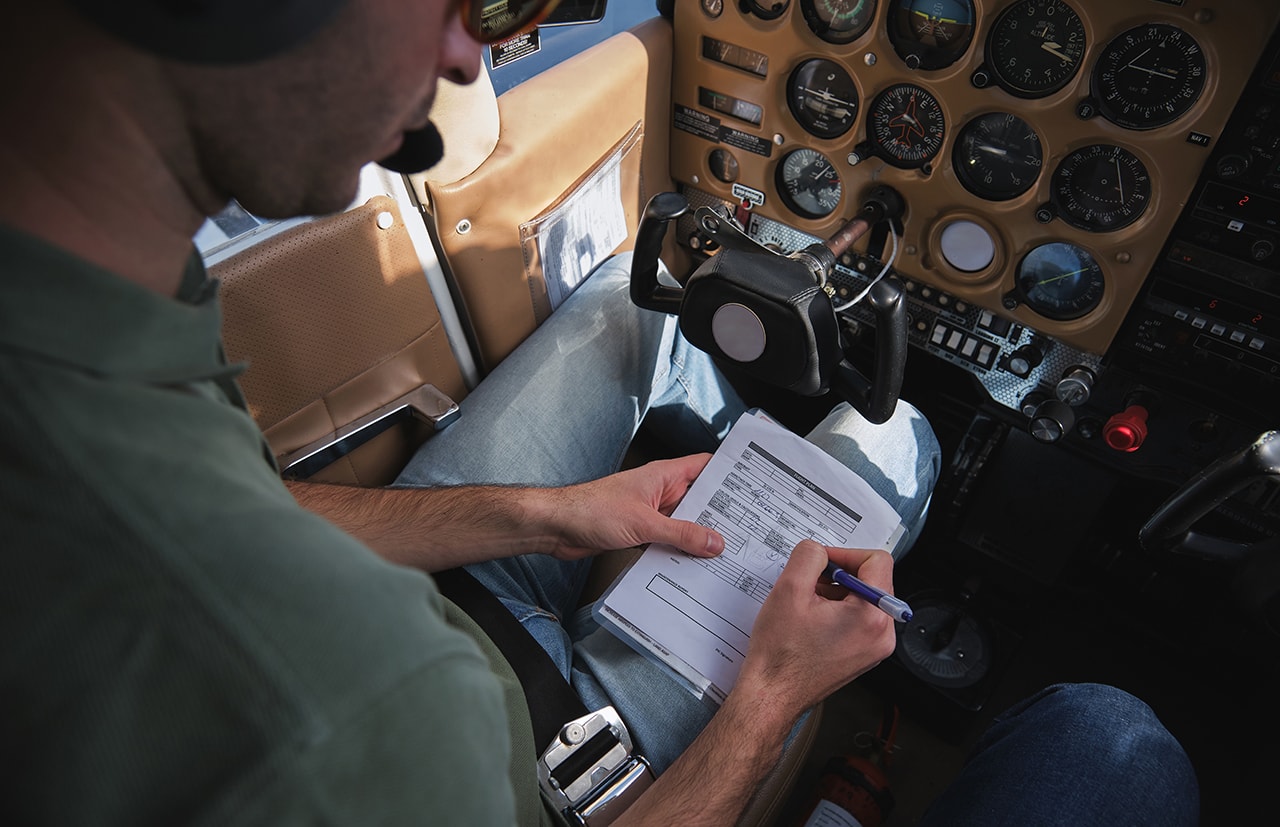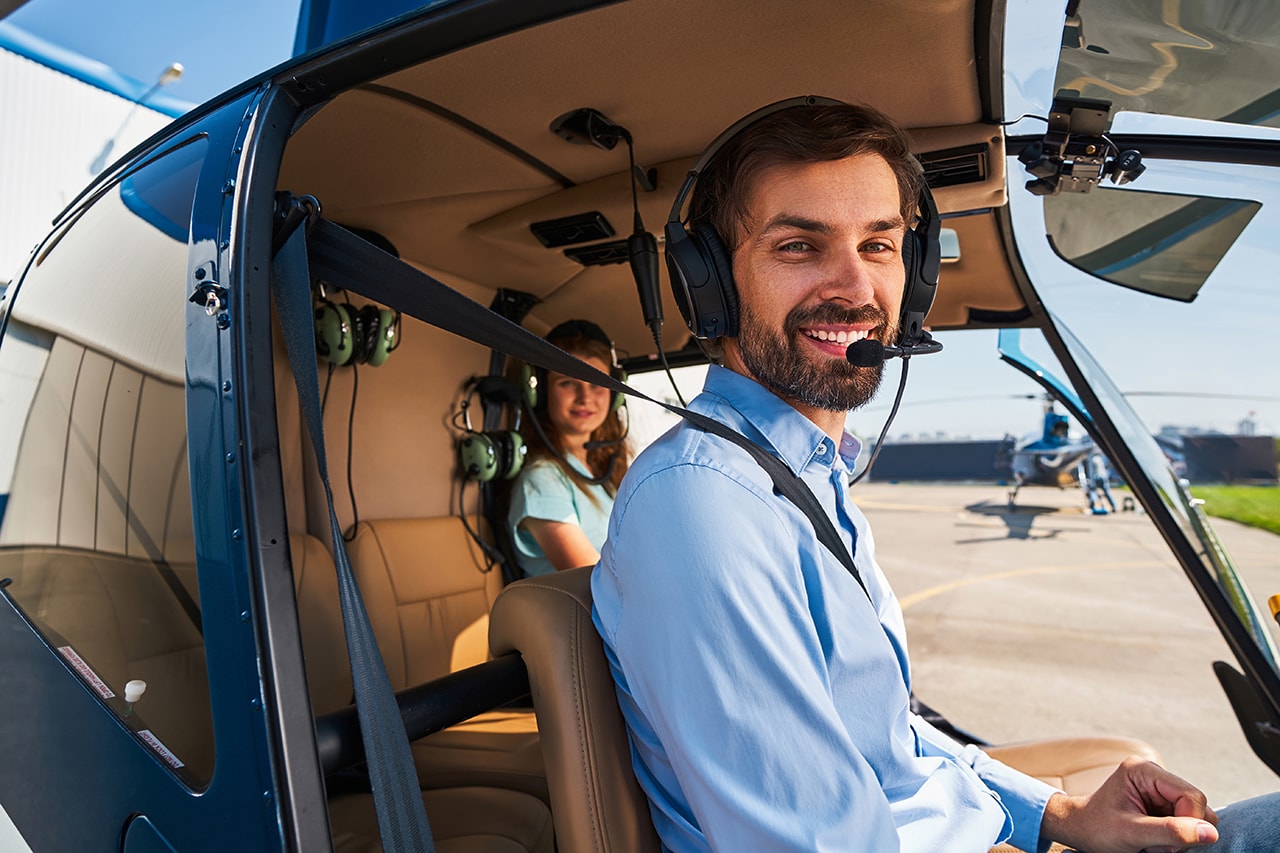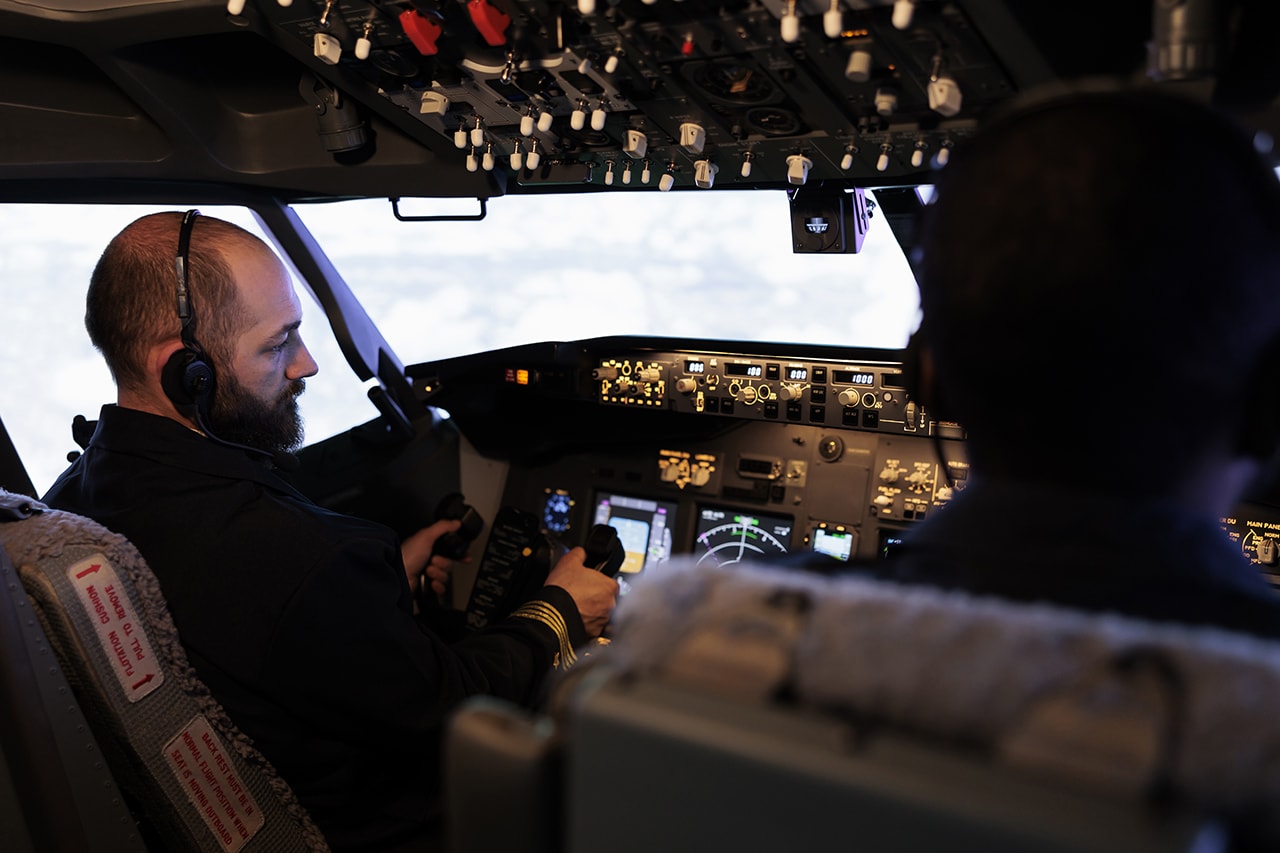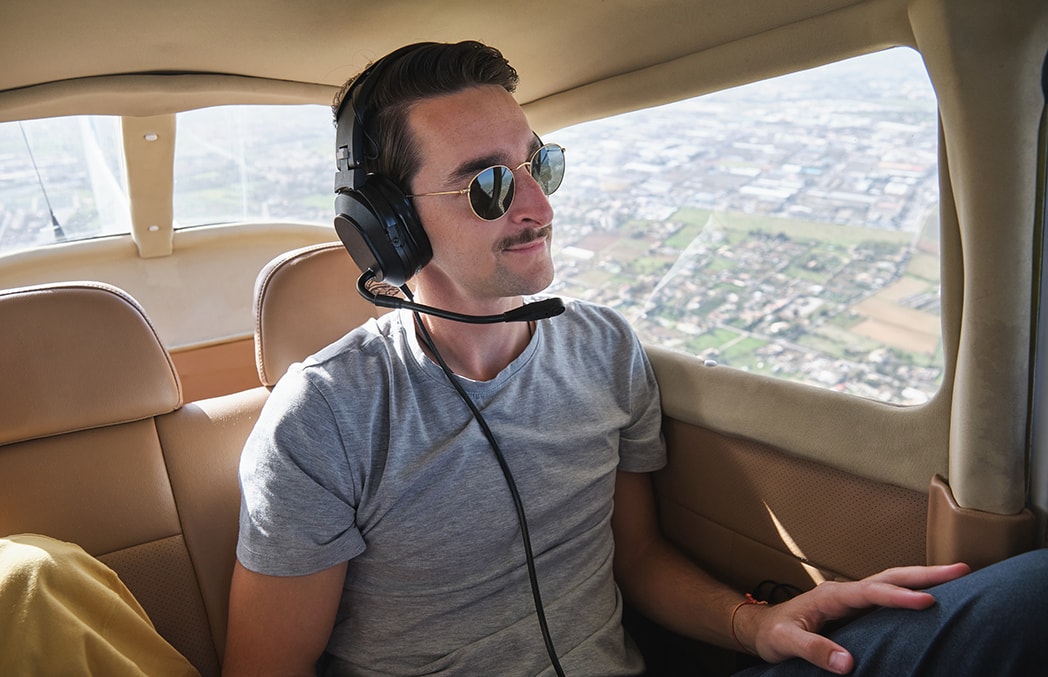Can a Felon Get a Pilot License? Steps & Requirements
Jun 16, 2025
Can a felon get a pilot license? Yes, but it’s not easy. This article will cover how a felony affects eligibility, the steps to get a license and tips to overcome the hurdles.
Key Takeaways
-
Felons can apply for a pilot’s license but eligibility depends on the type of conviction and TSA security assessments.
-
Medical certification can be tougher for felons especially those with drug or alcohol related offenses and can cause application delays.
-
Flight schools that cater to students with felony backgrounds play a big role in helping these individuals get their pilot licenses.
Eligibility for a Pilot's License with a Felony Conviction
The Federal Aviation Administration (FAA) doesn’t automatically disqualify people with felony convictions from getting a pilot’s license.
Having a felony doesn’t automatically mean you can’t be a pilot. But a felony can affect eligibility and potentially lead to losing a license if not addressed properly. Talking to an aviation attorney can help you navigate the process of getting a pilot’s license with a criminal record.
There are various organizations and resources available to help felons understand their rights and options related to aviation and pilot licensing. These organizations help felons understand how their criminal history affects aviation regulations and the licensing process.
For felons, getting a pilot’s license involves several steps and considerations. The FAA has specific eligibility requirements which can be more strict for people with a criminal history.
Knowing these requirements and getting legal guidance can help you navigate the process. Using available resources and showing rehabilitation can help felons overcome the challenges and work towards becoming licensed pilots.
Types of Felony Convictions That May Disqualify You
Certain felony convictions will disqualify you from getting a pilot’s license. Here are the disqualifying felonies according to the Transportation Security Administration (TSA):
-
Specific criminal offenses that pose a significant security risk
-
Felony drug convictions
-
Alcohol related offenses if within the last 5 years
The TSA will evaluate you based on your criminal history and recent convictions will disqualify you. Not all felonies will automatically disqualify you, but serious crimes and drug related felonies are big factors in the evaluation.
Background checks are part of the application process for a pilot’s license and felony convictions will be looked into. If you have a criminal record, you must be prepared to provide detailed information about your convictions and show your rehabilitation efforts.
Addressing the disqualifying factors and showing good moral character is key. Knowing the types of felony convictions that will impact your eligibility and taking proactive steps will increase your chances of getting a pilot’s license.
TSA Security Threat Assessment
The TSA does a security threat assessment on all pilot applicants and looks at their criminal history and other factors to determine if they are eligible to hold a pilot’s license. This is important for air travel safety as pilots are considered safety sensitive employees. A criminal history that includes serious offenses or a security risk can disqualify you from getting a pilot’s license.
Knowing the TSA’s process and addressing any security concerns is key for felons wanting to become pilots.
Medical Certification Requirements for Felons

Medical certification is a big part of getting a pilot’s license. Here are the key points:
-
The FAA requires all aspiring pilots including felons to have a medical exam.
-
The exam is done by an aviation medical examiner.
-
This exam is required to get a pilot certificate.
-
The FAA has three classes of medical certificates, and each has its own health standards that applicants must meet.
-
Meeting these health standards ensures the safety and well-being of both pilots and passengers.
Getting a medical certificate can be tougher for felons especially if the conviction is drug or alcohol related. A felony drug conviction or an alcohol related offense can delay the medical certification process for up to a year.
While the pilot certificate itself typically doesn’t expire, the medical certificate must be renewed periodically in order to remain eligible to fly raising the common question: does a pilot's license expire?
Felons wanting to be commercial pilots must also:
-
Pass a second-class medical certificate exam which has its own set of health standards.
-
Show long term sobriety.
-
Address substance abuse issues which is part of the medical certification process for felons.
Obtaining a First, Second, or Third Class Medical Certificate
The FAA has three types of medical certificates, each with different health requirements to ensure you are fit to fly. First class medical requires more vision and cognitive function than second and third class. This is for airline transport pilots and other professional pilots who fly in high stress environments.
Second class medical is for commercial pilots and has slightly less health requirements. Third class medical is the most basic and is for private pilots.
Meeting the health standards for any medical certificate is critical for flight safety. You will need to undergo a full medical examination to get a medical certificate, including vision, hearing and medical history.
For felons, this may involve more scrutiny especially if their criminal record includes substance abuse. Meeting health standards and showing good health will allow felons to get the medical certificate to pursue their pilot’s license.
Impact of Drug or Alcohol Related Offenses on Medical Certification
Drug or alcohol related offenses have a big impact on medical certification for felons:
-
Felons with drug or alcohol related felonies are delayed one year for medical certification.
-
After a conviction, felons can’t apply for a medical certificate for one year.
-
This delay is to give the applicant time to show they are committed to sobriety and rehabilitation.
Substance abuse can disqualify you from getting a medical certificate unless you can show two years of sustained recovery. This means monitoring and evaluation to ensure you are not using controlled substances.
The FAA takes substance abuse and alcohol very seriously because it can impact a pilot’s ability to fly an aircraft. Addressing these issues and showing long term sobriety can help felons get medical certification to get a pilot’s license.
Steps to Obtain Different Types of Pilot Licenses
Felons can get different kinds of pilot licenses by following the steps for their background. It’s the medical certifications, flight training and written and practical exams. Since the aviation industry is competitive, felons must show their rehabilitation and qualifications.
Regulatory bodies may scrutinize felons more during the certification process and that can add to the time it takes to get an Airline Transport Pilot (ATP) certificate.
Student Pilot Certificate
The first step for any pilot, including felons, is to get a student pilot certificate. This certificate:
-
Is a prerequisite to start flight training and log flight hours.
-
Felons must meet specific eligibility requirements.
-
Felons may have to go through background checks.
-
Felons can legally log flight hours.
-
Felons can work towards completing their requirements for higher pilot certificates.
Getting a student pilot certificate is a big step for felons to rebuild their lives and pursue a career in aviation. It’s the foundation for further training and certification, so felons can show they are committed to becoming responsible and qualified pilots.
Meeting the eligibility requirements and addressing the obstacles will allow felons to take the first step towards flying.
Private Pilot License Requirements

To obtain a private pilot license, felons must meet specific requirements:
-
Pass a third-class medical exam
-
Undergo a TSA background check
-
Meet FAA regulations
-
Complete a specified number of flight hours
-
Pass both written and practical exams
-
Complete a flight training program that complies with FAA standards
The private pilot license requires a significant milestone for any aspiring pilot, as it allows a person to fly for personal or recreational purposes. Meeting the medical and training requirements and passed the necessary exams demonstrate felons’ dedication to becoming responsible pilots.
Fulfilling these requirements allows felons to obtain a private pilot license and advance towards their aviation goals.
Commercial Pilot License Pathway
For felons aspiring to become commercial pilots, the pathway involves:
-
Passing a second-class medical certificate exam
-
Meeting flight hour requirements, including night flight hours
-
Completing written exams
-
Passing an FAA checkride
Commercial pilots must log a specific number of flight hours as part of their training. Completing a commercial pilot training course is essential for reaching a professional skill level and qualifying for various commercial aviation activities.
Commercial pilots have the opportunity to engage in activities such as:
-
flying tours
-
banner towing
-
agricultural work
-
charter flights as a professional pilot.
For felons getting a commercial pilot license requires dedication and hard work as they must show the FAA and the aviation industry, they can meet the strict requirements.
Completing the training and logging the hours allows felons to become commercial pilots and have a career in aviation.
Airline Transport Pilot License Challenges

Getting an Airline Transport Pilot (ATP) license is tough for felons due to the strict hiring practices of major airlines. These guidelines create barriers for felons even if they have the certifications. Felons will face more scrutiny during the certification process and will find it harder to get hired by major airlines.
For many aspiring pilots, especially those aiming for commercial aviation careers, the ATP is considered the highest level and is often referred to as an airline pilot license, representing the final step toward flying for major carriers.
Knowing both the certification process and the job market obstacles is key for felons in aviation. While getting an ATP license is a big deal, the job market challenges prove that you need to show rehabilitation and good moral character.
Addressing these challenges and looking for employers that will support you enables felons to overcome the barriers and pursue a career as airline pilots with intent to be hired.
Potential for License Suspension or Revocation
Pilots must disclose any felony convictions to the FAA or risk losing their license. A pilot’s license can be suspended or revoked if they don’t report a felony conviction to the FAA. If a pilot loses their driver’s license due to a DUI they must notify the FAA. This is important to the integrity of the licensing process and flight safety.
If a pilot’s license is revoked due to a felony conviction or non-disclosure they may have to retake the tests and meet the qualifications again when they are eligible. Knowing the potential for license suspension or revocation and addressing any issues proactively is key for felons to keep their licenses and pursue aviation careers.
Following FAA regulations and showing rehabilitation helps felons keep their licenses and fly.
Enrolling in Flight School as a Felon

Becoming a pilot is possible for felons, and enrolling in flight school is a crucial step in this journey. Some flight academies provide dedicated support to help students obtain a student pilot license and offer full coursework along with in-flight instruction to guide them through the process of becoming a pilot.
These schools often provide both full-time and part-time enrollment options, making it easier for students with different schedules to participate. Enrolling in a supportive flight training program ensures that felons receive the necessary instruction and mentorship to overcome challenges and pursue their aviation dreams.
Choosing the Right Flight School
Choosing the right flight school is crucial for felons, as it can significantly impact their training and certification process. Important considerations include:
-
Researching flight schools with experience in assisting students with felony backgrounds
-
Selecting schools that provide tailored support services
-
Finding schools that help felons navigate the unique challenges they may face
When selecting a flight school, look for institutions that recognize the potential in former felons and are committed to providing the necessary training and support. Choosing a flight school experienced in helping individuals with criminal records provides felons with the guidance and resources they need to succeed in their aviation careers.
Preparing for FAA Exams
Preparing for FAA exams is key for felons to get their pilot’s license. Using study guides and online resources specifically for FAA exam prep will help with the study process. Taking mock tests will help felons get familiar with the exam format and build confidence.
Joining study groups with other pilot students will give felons extra support and motivation. Using these resources and studying thoroughly will increase felons chances of passing the FAA exams and moving towards their aviation goals.
Legal Assistance and Resources
An aviation lawyer can guide felons through the process of getting a pilot’s license. An aviation lawyer can help with legal issues related to criminal charges and advise on how to meet FAA requirements.
There are resources to help felons understand their rights and options in the aviation industry.
